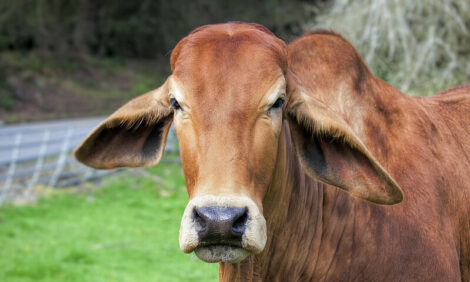



Diverse Ways to Slow Wormer Resistance
UK - There are two ways cattle producers can slow the rate of resistance to wormers, according to researchers surveying farmers to gauge perceptions to the risk of anthelmintic resistance.Environmental measures and care taken to accurately dose livestock are two approaches to use in combination to slow selection pressure for resistance in helminths – gut worms and liver fluke.
This is what experts at Edinburgh’s Moredun Institute are recommending to prevent wormer resistance across all three drug classes, which leads to “significant economic losses” and means farmers must use anthelmintics with care.
These approaches combine to reduce parasite exposure and reduce suboptimal doses.
To assess how wormers are retailed and used, Moredun is conducting an industry survey for UK livestock producers. available here.
Professor Jacqui Matthews, parasite researcher at Moredun, says that younger cattle are more likely to have higher levels of worm infection and that animals of all ages are susceptible to liver fluke.
“Infections with these worms can cause production losses, as well as clinical disease when infection levels are high,” she told TheCattleSite.
“The higher the level of infection, the higher the likelihood that clinical disease will occur.”
She said environmental measures are options like rotational grazing and fencing off/avoiding high risk, wet areas in late summer/autumn. Sheep are hosts to the fluke parasite, meaning beef farmers also grazing sheep should pay “special attention” to signs of infection.
Meanwhile, dosing accuracy is an important element to resistance. Professor Matthews listed calibrating dosing equipment, weighing animals, and properly reading label instructions as ways to ensure cattle receive accurate doses.
For those suspecting wormer resistance, Professor Matthews recommends Faecal Egg Count Reduction Tests and quarantining for any incoming stock.
“To make sure worms, particularly, resistant worms) are not introduced to a farm, all incoming stock should be quarantine treated,” she explained. “ For specific guidelines on quarantine treatments, refer to www.cattleparasites.org.uk and, for those that also farm sheep, www.scops.org.uk.”
Herd Rebuilding Could be Shortlived
A US agricultural economist has suggested the latest beef cow herd rebuilding phase could be shorter than the last one in the 1990s. read more
Legislation around rat bait is set to change - find out why here, read more
Michael Priestley
News Team - Editor
Mainly production and market stories on ruminants sector. Works closely with sustainability consultants at FAI Farms



